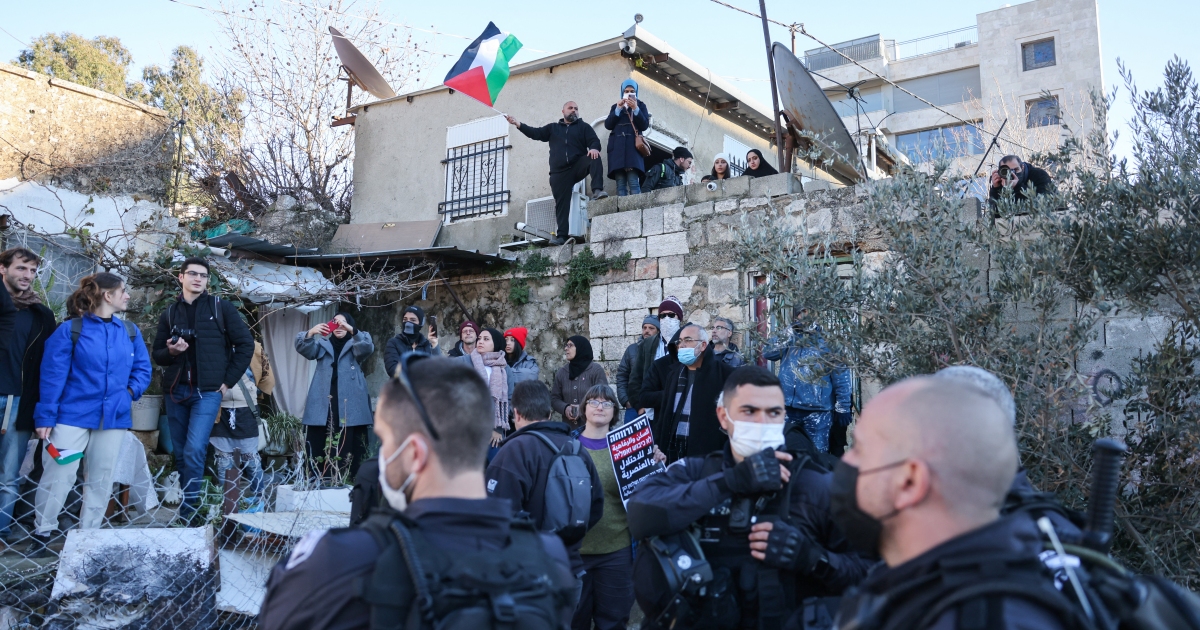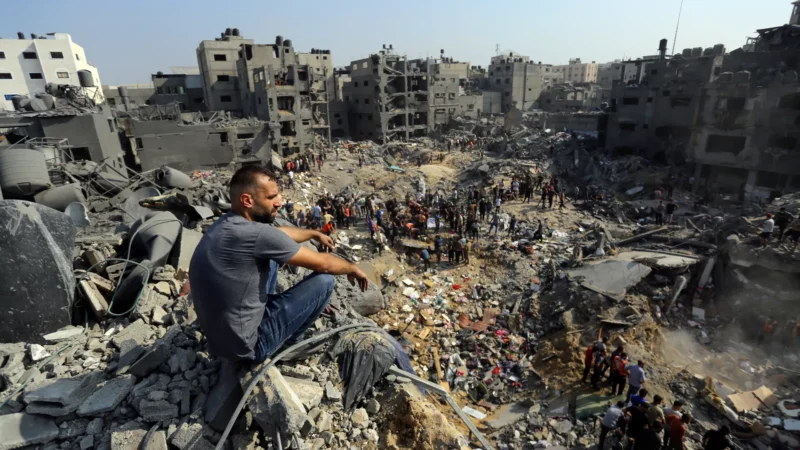Israeli top court suspends Palestinian evictions in Sheikh Jarrah

The ruling is a culmination of a decades-long struggle for Palestinian residents to stay in their homes.
Israel’s Supreme Court has ruled that a group of Palestinian families slated for eviction from the occupied East Jerusalem neighbourhood of Sheikh Jarrah can remain in their homes for the time being.
The court ruled on Tuesday that the four families could stay in their homes until Israel carried out a land arrangement, a process that could take years or may not be carried out at all.
The ruling is a culmination of a decades-long struggle for Palestinian residents to stay in their homes and could work to ease tensions in Sheikh Jarrah and other neighbourhoods, where protests and clashes last year sparked the 11-day Israeli bombing of Gaza.
Sami Irshid, a lawyer representing the Palestinian families, told AFP the decision was “significant”.
“The decision of the Supreme Court today cancels the eviction while the issue of ownership is decided,” he said.
“The court decides that the past decisions regarding ownership do not apply, and the residents of Sheikh Jarrah can argue their ownership and prove their ownership,” he added.
In August, the families refused a “compromise” proposed by Israel’s top court, in which they would be recognised as protected tenants in exchange for recognising Israeli ownership of their homes.
The new ruling leaves the final status of the property open to a decision by an office within Israel’s Ministry of Justice, said Gaal Yanovski, advocacy coordinator at Ir Amim, a Jerusalem group opposed to settlements.
Several Jewish settler organisations filed a lawsuit in 1972 against the Palestinian families living in Sheikh Jarrah, alleging the land originally belonged to Jews. Palestinian activists point out that hundreds of thousands of Palestinians were ethnically cleansed from their homes and land when Israel was founded in 1948. Israel has never allowed their return.
Israel captured East Jerusalem, along with the West Bank, in the 1967 war and annexed it in a move not recognised by most of the international community.
Dozens of Palestinian families in East Jerusalem have consequently been at risk of eviction and thousands face the threat of demolition. Israel’s discriminatory policies make it extremely difficult for Palestinians to build new homes or expand existing ones.
Tensions erupted last month when Israeli police on horseback scattered protesters in Sheikh Jarrah who had poured in to support Palestinians facing eviction by Jewish settlers.
Under international law, the Israeli judicial system has no legal authority over the population it occupies.
About 200,000 Israeli citizens live in East Jerusalem under army and police protection, with the largest single settlement complex housing 44,000 Israelis.
Sheikh Jarrah is one example of a wider trend in Palestinian neighbourhoods in Jerusalem regarding forced displacement. Israel’s settlement project, which is aimed at the consolidation of Israel’s control over the city, is also considered illegal under international law.






